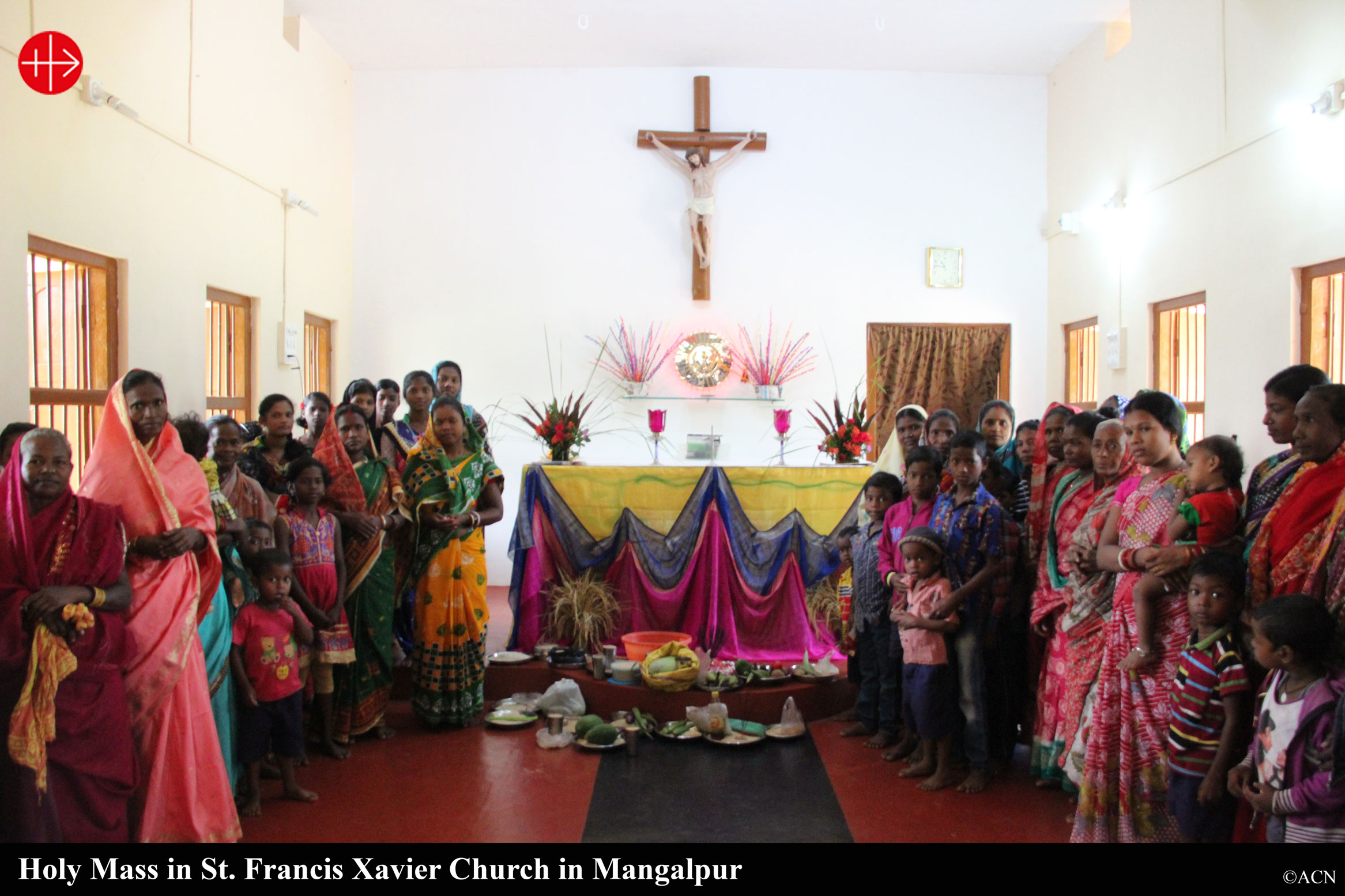INDIA
Modi wants a Hindu state
Christians in India suffer from discrimination by fundamentalist Hindus
During his visit to the international headquarters of Catholic pastoral charity “Aid to the Church in Need“, Bishop Thomas Paulsamy of the Indian diocese of Dindigul reveals his extreme disappointment following an increase in violent attacks back home.
In the South Indian state of Tamil Nadu Christians are complaining about increasing violence and discrimination by fundamentalist Hindus. Only last week, about 20,000 Christians of various denominations in at least 16 towns took to the streets to demonstrate against anti-Christian aggression. Since the start of the year, there have been reports of more than 15 cases involving violent attacks in Tamil Nadu. But the suppression of the Christian minority in mostly Hindu India is also intensifying in other parts of the country. Nearly 80 percent of the total population adhere to the Hindu faith, and only two percent are Christian.
The offences range from acts of desecration in churches, such as the rape of nuns through to the murder of a pastor and including the desecration of statues of the Virgin Mary. In particular, the murder of the pastor provoked major protests by the Christian population. Thousands took to the streets. The victim, a pastor of an independent Christian church in the district of Kanchipuram in the state of Tamil Nadu, was found hanged in January after he had turned to the police to complain about cases of harassment by Hindus.
Bishop Thomas Paulsamy also reports that Christians in Tamil Nadu feel increasingly under threat from radical Hindu fundamentalists. The bishop of the Indian diocese of Dindigul revealed his extreme disappointment about the increase in violent attacks when he visited the international headquarters of the Catholic pastoral charity Aid to the Church in Need. “We Christians actually cultivate good relations with Hindus, Muslims and other religious groups,” the bishop said. “We travel together, eat together and live together. Many even come into our churches.” At Christmas, for example, thousands of non-Christians visited Catholic services, including many Hindus. It is all the more distressing that a Hindu nationalist minority should disturb peaceful co-existence in this way. In Bishop Thomas’ neighbouring diocese, mainly Protestant churches have recently been attacked and Bibles burned.
Bishop Paulsamy is chair of the Committee for Disadvantaged Castes and Tribes in the Indian Bishops’ Conference. There is a discussion currently underway on how the Christian minority in India can be protected more effectively. An inter-religious working group has already been created in which representatives of a number of religious minorities, including Muslims, discuss possible solutions together. In addition, more and more bishops are now speaking out publicly and have protested against religious hatred. “But always peacefully, never violently,” Bishop Paulsamy stresses. After all, the Christians have had no desire to inflict on others the suffering that they themselves have endured.
Bishop Paulsamy believes the main cause of deteriorating relations between Hindus and Christians is the rise to power of Narendra Modi of the Hindu nationalist Bharatiya Janata Party (BJP). Before the BJP was in power, relations had been much more peaceful and harmonious, Bishop Paulsamy believes. Since Modi became prime minister, however, fundamentalist Hindu groups have become increasingly powerful. “The BJP supports the fundamentalists,” said the Bishop. The police have at times even persecuted the victims of violent attacks.
According to its constitution, India is a socialist, secular and democratic republic. “All people have an equal right to freedom of conscience, and free profession, practice and propagation of religion,” Article 25 of the constitution reads. But Bishop Paulsamy warns that Prime Minister Modi wants to turn India into a Hindu country. The bishop said: “He does not want the constitution to apply, but rather the religious principles and values of Hinduism.” There are various pieces of evidence to support this view: Modi’s ministers have repeatedly emphasised their support for measures intended to “protect” the Hindu religion. Religious minorities are seen as a threat, especially Muslims and Christians.
Following their electoral victory in 2014, the BJP government also wanted to reintroduce a nationwide anti-conversion law – a move which was then stopped by the law and justice ministry. The legal experts justified this with the comment that any legislation from the central government which restricts the free choice of religion violated the constitution. Even so, anti-conversion laws are in force in seven of 29 Indian states. The conversion was also banned in Tamil Nadu, a state with a comparatively high proportion of Christians at 12 per cent. However, the law has been rescinded. Even so, the government still views conversions critically. It can hardly be expected that Modi will abandon the project to impose a nationwide conversion ban.
In May 2019 elections will be held in India again. The opposition is trying to form a coalition party to stand as one against the BJP. Whether this succeeds in challenging Modi’s majority is questionable, however. Christians are threatened with a further five hazardous years. If Modi and the BJP are re-elected, Bishop Paulsamy is certain the discrimination against the Christian minority will continue. “As long as the BJP is in government it will make life difficult for Christians in India.”
Maximilian Lutz (Tagespost)





